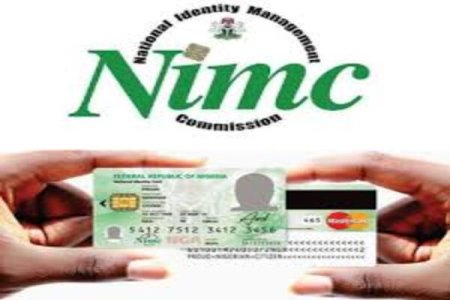
The Federal Government of Nigeria, through the National Identity Management Commission (NIMC), is set to launch a groundbreaking national identity card system. While the announcement has sparked curiosity among Nigerians, it also raises questions about the necessity of another identification card amidst existing challenges with the National Identification Number (NIN) policies.
1. Multifunctional National Identity Card:The new National Identity Card, mandated by the NIMC Act of 2007, serves as a General Multipurpose Card (GMPC) for Nigerian citizens and legal residents. It provides a tangible means to prove identity and access various government and private services.
2. Integration with Financial Services:In a strategic move to enhance financial inclusion, the National Identity Card doubles as a payment card through collaboration with the Central Bank of Nigeria (CBN) and the Nigeria Inter-bank Settlement System (NIBSS). This integration aims to empower disenfranchised Nigerians with access to banking services and broader economic participation.
3. NIN Eligibility Requirement:To obtain the National Identity Card, individuals must be registered with the National Identification Number (NIN) provided by NIMC. This prerequisite ensures that only registered citizens and legal residents can benefit from the card's functionalities.
4. Security Measures and Data Protection:The National Identity Card adheres to international standards of data security and privacy. With features like biometric authentication and encrypted chip technology, NIMC prioritizes safeguarding cardholders' personal information against unauthorized access.
5. Versatile Usage and Accessibility:Beyond serving as an identification and payment card, the National Identity Card offers additional functionalities such as travel documentation, health insurance information, microloans, and access to government subsidies. Its online availability and distribution channels at commercial banks, agencies, and NIMC offices nationwide ensure accessibility to a diverse user base.
6. Exclusive Eligibility for NIN Registrants:Only individuals registered with the National Identification Number (NIN) will be eligible to request the new National Identity Card, reinforcing the government's commitment to accurate and comprehensive citizen registration.
7. AfriGO Integration:Powered by AfriGO, a National domestic card scheme, the National Identity Card aligns with Nigeria's drive for technological innovation and domestic solutions for national development.
8. International Standards Compliance:The inclusion of machine-readable Zone (MRZ) and Nigeria's quick response code (NQR) aligns the National Identity Card with international standards such as those set by the International Civil Aviation Organization (ICAO), enhancing its interoperability and recognition.
9. Offline Capability:The card's offline capability enables transactions even in areas with limited network coverage or zero infrastructure connectivity, ensuring uninterrupted access to essential services for all Nigerians.
10. Holistic Service Integration:With features catering to various sectors including agriculture, transportation, and energy subsidies, the National Identity Card emerges as a comprehensive tool for citizen empowerment and socio-economic development.
Conclusion:Nigeria's new National Identity Card represents a significant leap towards inclusive development and efficient service delivery. As the nation prepares for its launch, it underscores the government's commitment to leveraging technology for the welfare and empowerment of its citizens.




